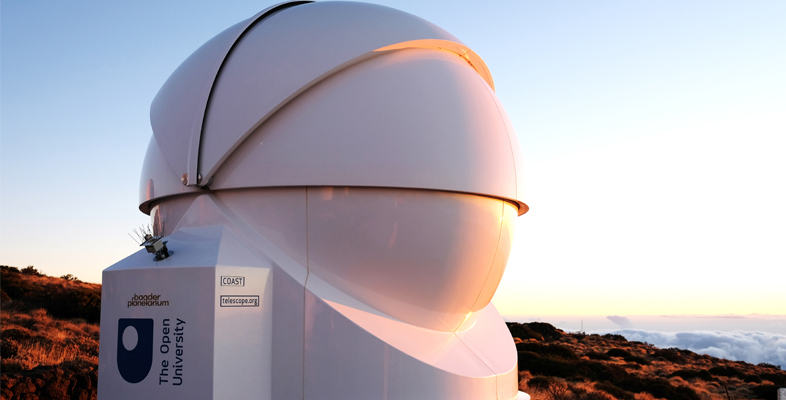1.2 Testing your own dark adaptation
With this understanding of how your eyes adapt to dark conditions you are now ready to try to make use of your night vision and to prepare for some observing. Firstly, there is a simple exercise that you can do at home on any dark evening.
Activity 2 Dark adaptation
Before venturing outside to look at the night sky, you can try out the effects of dark adaptation in the comfort (and warmth) of your own home.
- First, find a room where you can sit comfortably without being disturbed for half an hour or so. Take a book and, if you have one, a red light torch.
- After dark, close any curtains and shut the door. Turn off any television and computer screens. With the lights on, read your book for a few moments. Your eyes are now in their normal daytime state.
- Now turn off all the lights and note how much you can see immediately after the lights go out. Until you can see clearly, it will be best to sit quietly to avoid tripping over or bumping into things (this is also a hazard to be aware of when working in telescope domes).
- Sit quietly for 10 to 15 minutes. Look around from time to time. You should find that you are able to see more as time progresses. Try reading your book – you may be surprised at how much your vision has improved. After 20 minutes your eyes should be fully dark adapted.
- Be prepared when switching the lights back on – they may initially seem very bright to fully dark-adapted eyes.
This exercise should have given you an idea of the power of dark adaptation and a little more confidence in your night vision for when you venture outside to look at the night sky. As long as you are patient to let your night vision develop and are careful to preserve it by avoiding bright lights, you should find that you are able to work quite effectively in much darker conditions than you may have previously supposed.
